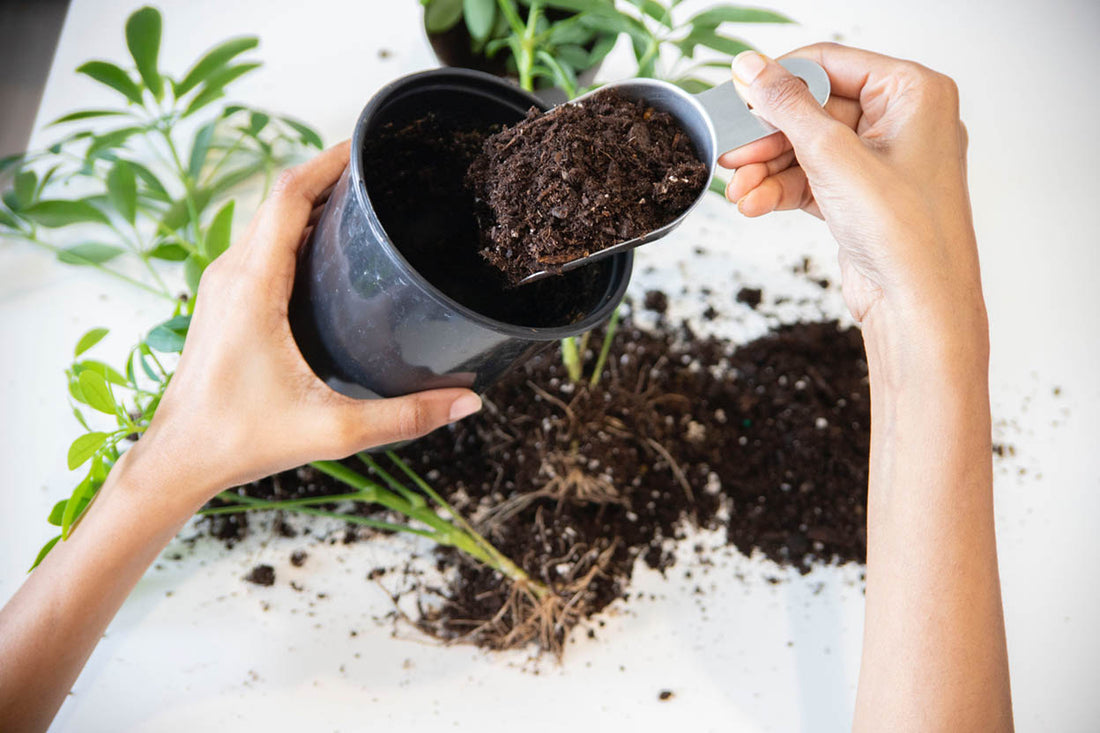Introduction
Closed terrariums are a delightful way to bring a piece of the outdoors inside your home. They create a self-contained ecosystem where plants thrive in a carefully balanced environment. One of the most critical factors for the success of a closed terrarium is the choice of substrate. In this article, we will explore the various substrates available and guide you on selecting the perfect one for your closed terrarium project.
Choosing the Right Substrate
Selecting the appropriate substrate is essential for the health and longevity of your closed terrarium. The substrate serves several purposes, such as providing support for the plants, retaining moisture, and maintaining proper drainage. Let's explore the most popular substrates for closed terrariums:
- Potting Mix
Potting mix is one of the most commonly used substrates for closed terrariums. It's a blend of organic materials like peat moss, perlite, and vermiculite. This mix provides excellent drainage while retaining moisture, making it ideal for a variety of plant species.
Pros:
- Good moisture retention and drainage.
- Suitable for a wide range of plants.
- Commercially available in garden centers.
Cons:
- May contain added fertilizers.
- pH levels may vary.
- Cactus/Succulent Mix
Cactus and succulent mixes are specifically designed for arid-loving plants - and not tropical plants that love humidity. These mixes have a higher proportion of sand and perlite, which enhances drainage, preventing root rot in closed terrariums.
Pros:
- Perfect for succulents and cacti in a closed terrarium environment.
- Excellent drainage properties.
- Reduces the risk of overwatering.
Cons:
- Unsuitable for moisture-loving plants.
- May require additional amendments for other plant types.
- Orchid Bark Mix
Orchid bark mix is a great choice for closed terrariums housing orchids, bromeliads, and other epiphytic plants. This mix offers superb aeration and moisture retention.
Pros:
- Ideal for epiphytic plants.
- Excellent drainage and aeration.
- Resistant to compaction.
Cons:
- Not suitable for all plant types.
- Can be relatively expensive.
- Terrarium-Specific Mix
Some garden centers offer terrarium-specific mixes, specially formulated for closed terrariums. These mixes are typically well-balanced in terms of moisture retention, drainage, and aeration.
Pros:
- Tailored for closed terrariums.
- Balanced properties for most plant species.
- Convenient option.
Cons:
- Availability may vary by location.
- DIY Mix
For those who prefer a more customized approach, you can create your own terrarium substrate mix. This gives you full control over the components and allows you to cater to the specific needs of your plants.
Pros:
- Tailored to your plant selection.
- Complete control over the ingredients.
- Can be cost-effective.
Cons:
- Requires time and effort to prepare.
- May need testing and adjustment.
Additional Considerations
When choosing a substrate for your closed terrarium, consider the following factors:
-
Plant Selection: Different plants have varying substrate preferences. Choose a mix that matches the needs of your selected plant species. Learn more about the Top 5 Closed Terrarium Plants.
-
Container Size: The depth of your terrarium container can impact moisture levels. Deeper containers may require substrates with better drainage to prevent waterlogged roots.
-
pH Levels: Check the pH levels of your chosen substrate. Most closed terrarium plants prefer a slightly acidic to neutral pH.
-
Sterilization: Sterilize the substrate before use to eliminate harmful microorganisms that could harm your plants.
Conclusion
Selecting the right substrate is a critical decision when creating a closed terrarium. The perfect substrate will provide a stable environment for your plants to thrive, ensuring a self-sustaining ecosystem. Whether you opt for a commercial mix, create your own blend, or choose a specialized substrate, understanding your plant's needs and your terrarium's size is key to success. With the right substrate, you'll enjoy the beauty and tranquility of your closed terrarium for years to come.




